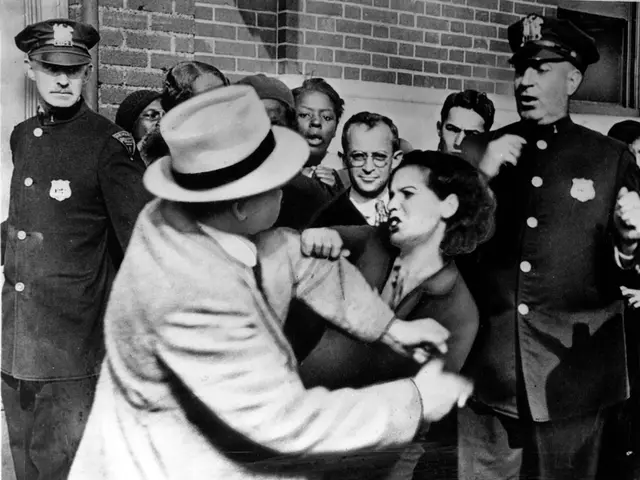Georgia's Head of State, Kavelashvili, Headed to Turkey for Discussions on Strategic Alliance
Turkey and Georgia Strengthen Partnership with Presidential Visit
Turkey and Georgia are set to strengthen their strategic partnership as Georgia's President Mikheil Kavelashvili visits the country from August 12-13, at the invitation of President Recep Tayyip Erdogan. This visit, the latest in the ongoing efforts to strengthen relations, is anticipated to revitalize the longstanding friendship and strategic partnership between the two nations.
The partnership between Turkey and Georgia has developed strongly in the realms of politics, economics, and culture. Economically, Turkey has been Georgia's largest trading partner for 17 years, with trade volume reaching $3.4 billion in 2024. The mutual goal is to increase this to $5 billion. Turkish investments in Georgia approach $2.5 billion, with around 2,000 Turkish companies operating there, supported by Georgia's favorable investment climate.
Central to their partnership is the Baku-Tbilisi-Kars (BTK) railway, which Turkey calls "the backbone of the Middle Corridor." This corridor is a critical east-west trade route connecting Asia and Europe, enhancing regional commerce and integration. The railway is now operating at full capacity, underlining its strategic importance for Turkey, Georgia, and Azerbaijan.
In addition to economic cooperation, military and defense cooperation is also expanding. Turkey and Georgia are collaborating in the military-industrial complex and defense sectors, as part of a broader trilateral mechanism involving Azerbaijan. This cooperation aligns with Turkey's vision of integrating Georgia into a regional military-political architecture aimed at strengthening Turkic ties in the South Caucasus.
The visit will also include discussions on current regional and global developments. The partnership supports peace and stability in the Caucasus, with commitments to work "shoulder to shoulder" on regional development and security. However, some analysts view Turkey’s role as part of a wider Turkic expansion strategy, particularly with issues like the return of the Meskhetian Turks to Georgia, which could have demographic and political implications in the region.
The visit is significant in the context of Turkey's relations with Georgia. Diplomatic ties between the two countries were established in 1992, with Turkey being one of the first countries to recognize Georgia's independence. Turkey continues to support Georgia's integration with Euro-Atlantic institutions.
Joint infrastructure projects, such as the Baku-Tbilisi-Kars railway, TANAP, and BTC pipeline, are part of the partnership. While no specific details about the agenda of the visit were provided in the announcement, leaders aim to increase bilateral trade, strengthen joint infrastructure and defense projects, and position themselves as key players in the South Caucasus and the broader Eurasian region.
The visit is an official one, as announced by Presidential Communications Director Burhanettin Duran on Saturday. The leaders aim to continue enhancing trilateral cooperation (Turkey-Georgia-Azerbaijan) on economic, foreign policy, and security fronts. Turkey plans to host upcoming trilateral foreign ministers and parliamentary meetings to institutionalize this cooperation.
- Turkey and Georgia's ongoing efforts to strengthen their partnership were highlighted during President Erdogan's invitation to Georgia's President Mikheil Kavelashvili, with discussions on increasing bilateral trade, strengthening joint infrastructure and defense projects, and positioning themselves as key players in the South Caucasus and the broader Eurasian region.
- The Baku-Tbilisi-Kars (BTK) railway, which Turkey calls "the backbone of the Middle Corridor," is a critical east-west trade route connecting Asia and Europe, and is a central component of the Turkey-Georgia partnership.
- Turkey's support for Georgia's integration with Euro-Atlantic institutions and its vision of integrating Georgia into a regional military-political architecture aimed at strengthening Turkic ties in the South Caucasus have raised questions for some analysts about Turkey’s role in regional developments.




